Dr Payal Tadvi-s suicide after harassment by seniors is not surprising for scores of students from backward communities and Scheduled Castes and Tribes, who are given lessons less often in their subjects and more often on -their place in society-

Panvel-based pathologist Dr Santosh Wakchaure hails from Ahmednagars Chambhar community and stood 50th across Maharashtra in the degree entrance test. At BYL Nair Hospital, he faced caste-based harassment, especially after he was voted president of MARD.
At Panvel-s Horizon Diagnostics, where a board announces a list of available services — from blood tests to audiometry — hangs a proud board: Dr Santosh Wakchaure; MBBS MD Path, AFIH, LLB; Consultant Pathologist. The board represents a long journey for Wakchaure, 32, who set up the clinic in 2014.
His childhood, he says, was spent in a 100-sq-feet room in a village in Ahmednagar district which he shared with five siblings and his parents. His father worked as a peon at a government school, while his mother was a daily wage earner under the Mahatma Gandhi National Rural Employment Guarantee Act. While Wakchaure runs tests on patients in air-conditioned rooms, his mother "would dig drains under the scheme". Between the two, the parents would barely earn R2,000 a month to feed eight mouths, he says. He watched how his parents struggled to cough up money for the smallest of medical treatments. And, when his elder brother decided to pursue a career in medicine, Wakchaure figured he-d follow suit. Both made it to Mumbai institutes.
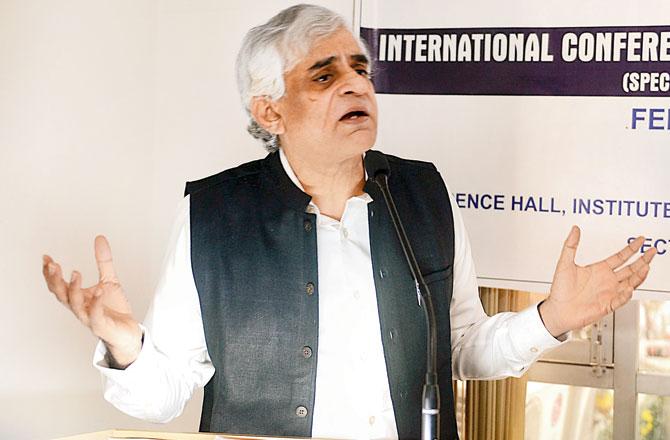
P Sainath
"Our parents couldn-t afford tuition, we had to study on our own. I scored 90 per cent in class 12 and later, in the degree entrance test, under the SC quota, I stood 50th in the state and got admission at Nair hospital in pathology," he recollects. That was in 2013. Wakchaure, who had previously studied at the Rural Medical College in Loni, says it was at Topiwala National Medical College, which is housed in BYL Nair Charitable Hospital, that he first faced casteist remarks: "Do you know the history of your ancestors? They used to serve people and you are among them. So, stay within your limits," he was told.
"They would tell me that I am born to polish their shoes or clean their bathrooms," says Wakchaure, who hails from the Hindu Chambhar community. He speaks of seniors at the very medical college that has come under recent scrutiny for mishandling the case of Dr Payal Tadvi, who committed suicide on May 22, after allegedly facing caste harassment by three seniors over a period of seven months. Tadvi-s suicide and the college-s refusal to act in a resolute manner — her lecturer and hostel warden to whom she had complained told her to "focus on studying instead of responding to such acts" — have turned focus on the condition of students from lower castes and reserved categories across Maharashtra-s academic institutes. While the cases of discrimination are rampant, they are most often underreported. When reported without due action, the harassment only worsens.
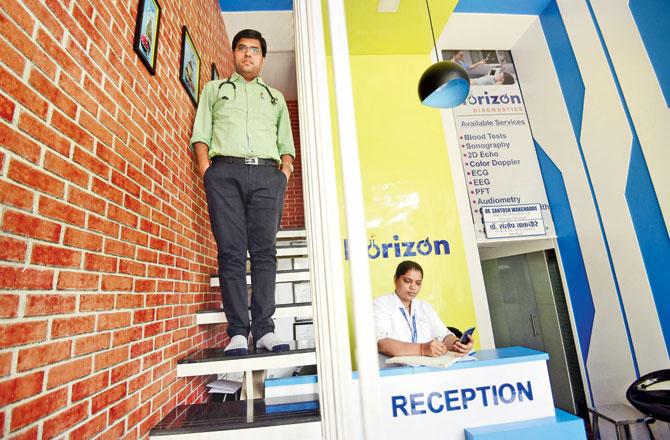
Dr Santosh Wakchaure, a pathologist who runs Horizon Clinic in Panvel, graduated from BYL Nair Hospital where, he says, he was met with regular caste-based harassment. His initial complaints to the dean did not attract strict action, so he filed an FIR at Agripada police station. Pic/Sameer Markande
When teachers turn on you Wakchaure says that the caste-based harassment by seniors intensified after he got voted the president of the Maharashtra Association of Resident Doctors MARD at the hosp-ital, and later became the president of the central MARD body. When it got too much to bear, he approached the dean, Dr Ramesh Bharmal who still holds the post. The two male doctors he had charged were suspended for a month from the hostel. Yet, they continued to stay on. When Wakchaure brought this to the dean-s attention, a temporary committee was formed which gave a clean chit to the accused within seven days, despite witness statements that supported Wakchaure-s accusations. "They continued to threaten me. When they [college] let them go, I filed an FIR at the Agripada police station," he adds. The two doctors were arrested under Section 310 of the Scheduled Castes and Tribes Prevention of Atrocities Act. But the Sewree Court gave them bail, following which they approached the Bombay High Court, requesting that the FIR be quashed. Later, they withdrew the request and approached the Sessions Court, where the case is still being heard.
Tadvi-s and Wakchaure-s cases are not isolated. Worse, the perpetrators are not always students. What happens when the discrimination is by the person expected to protect you through your academic career? Prerna, a 29-year-old who is a Hindu Mahar, was 17 when she arrived in Mumbai from her village in Yavatmal. "My father was working in the state agricultural department, but died of a heart attack in 2007. We are five siblings, and I am the youngest. I knew my family couldn-t support me further since they had to collect money for my wedding. But when I got a first class in the 12th board exams, my sister decided that she would support me. I graduated in 2007 but had to wait a year to get enough money for college. So, in 2008, I came to Ambernath and took admission at a local college and lived with my relatives."

Students of Jawaharlal Nehru University at a march from Mandi House to Jantar Mantar against Rohith Vemula-s death, on March 30, 2016, in New Delhi. A PhD student at the University of Hyderabad, Vermula had sought admission via a Scheduled Caste certificate, and killed himself in January 2016, allegedly after his scholarship was denied following a run-in with Akhil Bharatiya Vidyarthi Parishad ABVP. His suicide note blamed "the system". Pic/Getty Images
After graduation, Prerna felt that she was becoming a burden on her relatives and opted for hostel stay at Mumbai University, where she enrolled in a masters course in political science. "Until then, I hadn-t felt like I belonged to a backward community. A professor in class passed a remark at two of us, saying, -You have to look good and smell good, too-. I wondered why she said that. But, as time passed, I realised we were -special- for a few professors," recalls Prerna, who is now an assistant professor at a Navi Mumbai college.
Upper caste students getting personal attention was commonplace. "They used to get notes and referral books. When we-d approach the professors, we-d get told, -Let-s talk tomorrow- or -Google it-. I genuinely wanted to study, but like me, three other students were neglected or shouted at for no reason," she says.

Dr Payal Tadvi-s mother Abida Salim breaks down at a protest held on May 28 outside BYL Nair Hospital. Saying that her daughter confided in her about the caste-based harassment, she has demanded action against the three accused doctors. Pic/Bipin Kokate
In MPhil, matters became worse. She observed how upper caste students got assigned better NGOs to work with. "All the backward community students got NGOs that worked in slums. We didn-t mind working there, but what was depressing was the treatment we-d receive. Many a times, upper caste friends would tell us that professors spoke of our background, saying, -What are they going to do with higher education?-"
It was time for Prerna to retaliate. She asked the professor why she couldn-t work with a reputed NGO, where she-d get the kind of exposure others did. "The professor was baffled. She didn-t expect a girl from a village to question a Mumbai University professor. I warned of complaining to the VC if I was discriminated against." While the treatment she was meted out improved, Prerna says, "I thought it was behind me, but when I received the final year result, I was shocked. The professors against whom I had raised my voice, gave me the lowest marks in projects and research. How could I question that?"
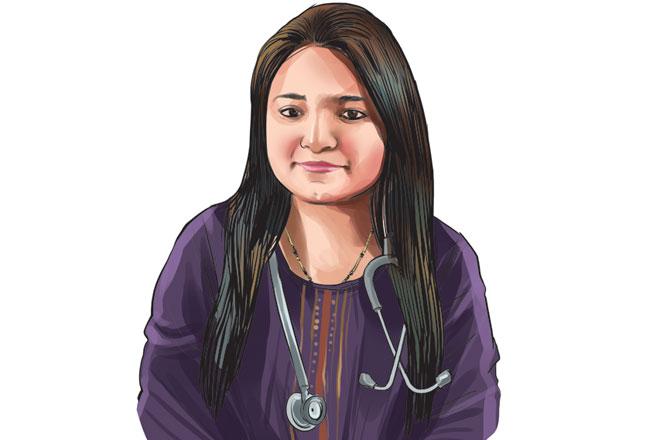
Illustration/Uday Mohite
Support among peers
At Powai, the administration at IIT Bombay says, caste discrimination is not an issue on campus. In a statement to mid-day from the institute-s PRO, the administration says, "In order to have a harmonious and conducive atmosphere, a special cell was set up in 2017 for all the reserved category students — the SC-ST students- cell. Over the last three-and-a-half years, no incidents of caste-based harassment or discrimination have been reported either through the online portal or over email/telephonic communication. At IIT Bombay, around 49 per cent are from the reserved category SC/ST/OBC. Since caste based discrimination/harassment is an extremely important social issue, an awareness lecture is given to all incoming students during registration. All the students are informed about the law and what constitutes harassment/discrimination. Further, the general category students are told that it is their privilege to interact with students who are from different social backgrounds. It is made crystal clear to all students that any statement that has slightest tinge of discrimination is unacceptable at IIT Bombay."
But, not all agree. A PhD scholar from the institute, who is a member of an informal support group for Dalit students, Ambedkar Periyar Phule Study Circle APPSC, says APPSC on an average receives seven discrimination complaints every academic year. Yet, since inception in 2015, it has remained an informal group. "The authorities have argued that since we are caste-based, representation cannot be allowed. The fact that there is a need for such representation shows that the institute has not been completely successful at eradicating discrimination." The lack of recognition, says the scholar not wishing to be identified for the story, poses a challenge in dealing with issues because victims are afraid to approach them. "We struggle to book a venue for any programme that we plan to conduct. Our introduction as well, to the new batch is through leaflets distributed after orientation, where we are not allowed to make a presentation." He adds that until two years ago, roll numbers of students were given based on their merit rank in the entrance test.
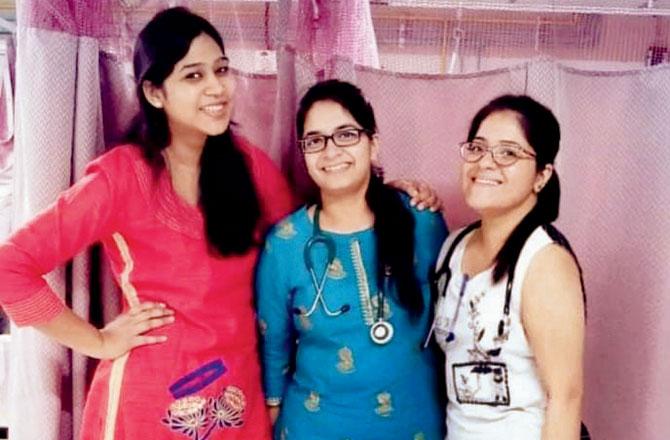
Bhakti Mehare, Hema Ahuja and Ankita Khandelwal
"This clearly identified those students who had got admission on reservation seats and that led to further taunts and remarks. While reservation policies seem to be followed in admissions, they appear to have gone for a toss when it comes to faculty appointments. There are very few faculty members who are from the reserved category. If this changes, there may be a higher chance that issues of students from the reserved category will be handled more effectively." In fact, IIT also has a second group of Dalit students, Ambedkarite Students- Collective. Formed last year, its agenda remains to create a safe place for students from various reserved categories so that they feel a sense of belonging. Swapnil Gedam, a masters student and member of the group, says, "The campus is intimidating [for an outsider]. Amid all this, a casual remark about a reserved category student can have a huge impact on his/her personality. Not only by fellow classmates, such remarks are casual among professors, too. Our objective is not to take a stand in administrative matters, but to resolve issues and help others like us survive successfully."
Gedam, who belongs to the Mahar community which falls under the SC category, speaks of the importance of equity over equality in educational institutions. The son of non-educated parents from Nagpur, he had to begin working after school to help his family meet ends. "Once somebody begins interacting with our collective, s/he is also identified as a student from the reserved category. People prefer to keep their identity hidden out of fear. There is an SC/ST Cell on campus but you hardly see them hold activities, forget resolving issues," he adds. At some of the city-s medical institutes, students are not always aware that they they have access to a grievance cell. A second-year degree student at Cooper Hospital tells mid-day, "There is anti-ragging cell but we don-t know about a grievance redressal cell. In fact, complaints to the anti-ragging cell also often go unheard." Dr Ravikanth Singh, former secretary of central MARD, says, "There is a need for more a stringent student grievance redressal cell as often, the HODs avoid complaints made by students. This aggravates matters like in Dr Payal-s case. Students need an unbiased committee to hear and act on their grievances."
Conversation about reservation
According to P Sainath, journalist, Ramon Magsaysay awardee and founder-editor of the People-s Archive of Rural India, this is not about reservation at all. "The question here is that a human being has been driven to commit suicide due to caste discrimination. The issue is casteist behaviour. By connecting it with reservation, the attention is diverted entirely from the evil and enormity of what has happened. This is not going to get any better with the rise of Hindu fundamentalism. If fundamentalism rises, caste issue will rise, too. After all, you have cabinet ministers who have called for replacing the Indian Constitution with the Manusmriti. These are people who are entirely at ease in a caste-based society."
Speaking about the case of Rohith Vemula, the student from University of Hyderabad who committed suicide in January 2016, post non-payment of fellowship after a series of clashes with the local Akhil Bharatiya Vidyarthi Parishad ABVP unit, Sainath points out that there was not a word from top leaders except an HRD minister who made it look as if everybody else was victimising Vemula. "Then the government went out of its way to make the proposition that Vemula was not a Dalit. Even after both the tehsildar and district collector had certified that Rohith Vemula was Dalit, a panel was set up with a retired judge to arrive at the conclusion that he was not. That is the extent of caste hatred, and it-s not recent. But the nature of political leadership, the current social situation and competition under the economic scenario means that instances of caste hatred are not going to disappear; in fact, they may get worse."
Timeline
May 13, 2018 Dr Payal Tadvi, 25, joins BYL Nair Hospital for PG in Gynaecology and Obstetrics
Nov 2018 Tadvi reports harassment. She goes missing from work for two days without informing anyone
Dec 2018 Abeda Tadvi, Payal-s mother, makes a verbal complaint to the unit head and HOD of the department
May 13, 2019 Abeda tries to meet the dean with a complaint letter but is denied permission by security officers
May 22 Payal-s body is found in her hostel room. Agripada police register a case against Bhakti Mehare, Hema Ahuja and Ankita Khandelwal under Section 306 abetment to suicide of the Indian Penal Code IPC, sections of the Scheduled Caste/Scheduled Tribes Atrocities Act, Anti-Ragging Act and Information Technology Act, 2000
May 25 The three accused write to MARD seeking -fair investigation-
May 28 Mehare is arrested from Sessions Court premises, where she arrives to file anticipatory bail. The anti-ragging committee of the college finds her and the other two guilty and suspends them, pending investigation. BMC suspends the three doctors along with unit head Dr Yi Ching Ling. Ahuja is arrested by the Agripada police at Andheri railway station
May 29 Khandelwal is arrested from Central Mumbai. A Mumbai Special Court remands the three accused until May 31
May 31 Three accused sent to judicial custody till June 10
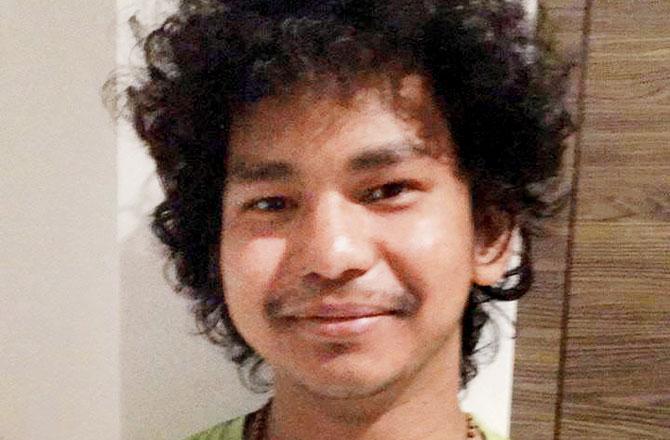
Happens even at TISS
-Things are certainly better at TISS compared to the harassment faced by students at engineering and medical institutes, but it is not absent. The taunts on how it is easy for us to get admission because of reservation are never-ending, whether from fellow students, professors or teachers of social sciences. Other than declaring reservations for marginalized sections of society, we need stronger policies to educate everyone on the need of such reservation. My scoring 60 or 70 per cent in a board examination is equivalent to a general category student scoring 80 because I have not received the support from family or a suitable environment to carry out effective studies. It is important to create awareness about the reason behind reservation,-
Christopher Nag, MPhil, TISS, member of Adiwasi Students- Forum
Catch up on all the latest Crime, National, International and Hatke news here. Also download the new mid-day Android and iOS apps to get latest updates
 Subscribe today by clicking the link and stay updated with the latest news!" Click here!
Subscribe today by clicking the link and stay updated with the latest news!" Click here!









